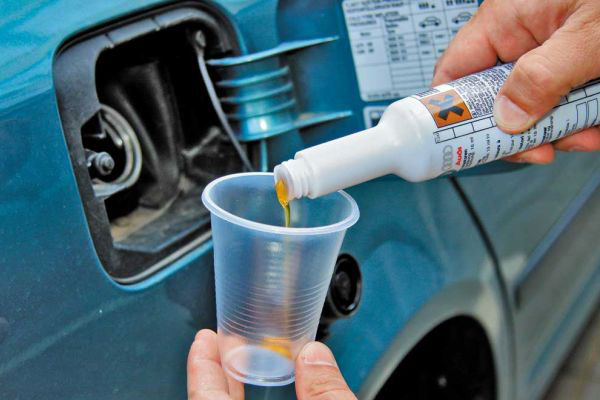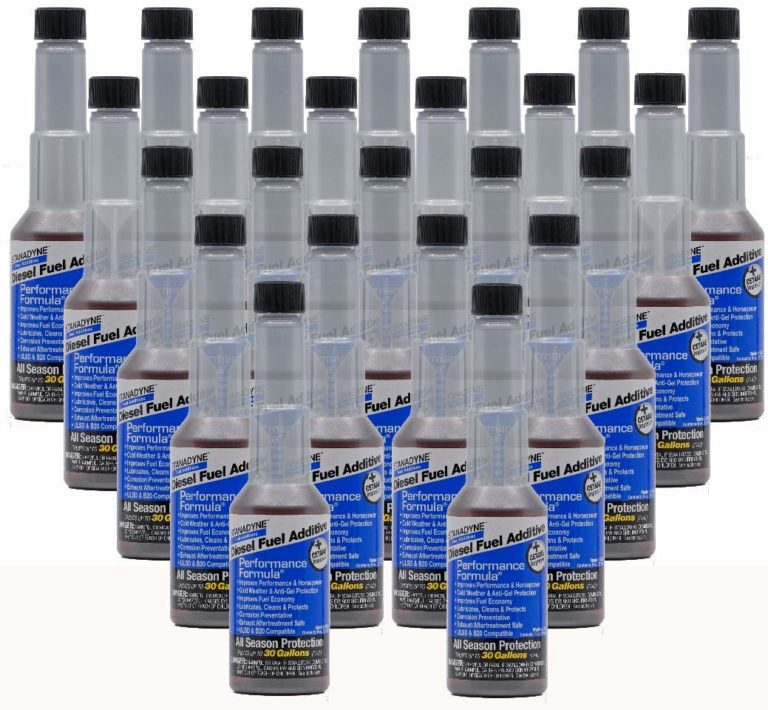
Additives in diesel fuel: engine protection in difficult situations
Pouring low-quality diesel fuel into the tank can damage the engine until it completely fails. To minimize or eliminate the negative consequences of refueling with low-quality diesel, special auto chemical goods help - additives in diesel fuel, which are described in detail in this article.
What are diesel additives?
Diesel fuel additive - chemicals or complexes of substances added to diesel fuel for its modification (changes in certain characteristics or qualities). Additives are called both components used in the industrial production of fuel, and designed to change the characteristics of the fuel in a single car. This article will focus on the second group of funds.
Additives can have various effects on diesel fuel:
- Improving frost resistance (prevention of negative effects on the fuel of negative temperatures);
- Increasing the cetane number of diesel fuel;
- Improving the lubricating characteristics of the fuel;
- Cleaning the fuel system, its protection against mechanical wear and corrosion;
- Comprehensive improvement in diesel performance.
Additives in diesel fuel can be used both on an ongoing basis and as an “emergency” means - in those situations when poor quality fuel is poured into the tank. And before making a choice of additives with the necessary characteristics, you need to learn about the existing types and features of these funds. For more detailed guide, check out https://www.automobileremedy.com
What are the additives in diesel fuel?
All diesel fuel additives on the market can be divided into two large groups according to their purpose:
- Additives for "emergency" situations - components for a single addition to the fuel;
- Regular additives are components for regularly modifying the fuel used on a car.
The first group includes additives with various effects:
- Lubricating;
- Cetane enhancers (cetane correctors, catalysts);
- Antigels (depressant-dispersant additives);
- Universal.
The second group includes additives for solving various problems:
- Fuel system cleaning;
- Protection of fuel system components against corrosion and wear;
- A comprehensive change in diesel fuel to achieve certain characteristics.
Each of the additives has certain characteristics.

Lubricating additives in diesel fuel
Diesel fuel must have a certain lubricity, which is determined by the diameter of the wear spot of the rubbing surfaces. In accordance with Russian standards, the diameter of the wear spot for various types of diesel fuel should be in the range of 490-550 microns (summer), 570-660 microns (winter), more than 650 microns (arctic). Winter brands of diesel fuel have the worst lubricating ability, therefore lubricating additives are relevant precisely in the winter season.
Cetane boosting additives in diesel fuel
The ability of diesel fuel to ignite is determined by a special parameter - a cetane number, which indicates how much time passes from the moment the fuel is injected into the combustion chamber to ignite it. According to Russian standards, this parameter ranges from 40 to 55, while summer fuels should have a cetane number of 46, and a cetane number of 40 is allowed only in extreme cases for Arctic fuels.
In winter marco fuels, the cetane number is lower than in summer, so they ignite worse and can make starting and operation of the engine more difficult to “cold”. Cetane enhancing additives (also known as cetane correctors or fuel catalysts) can increase the cetane number of fuel and solve problems with combustion of the fuel-air mixture.
© Copyright Blog